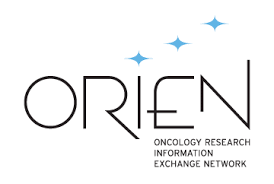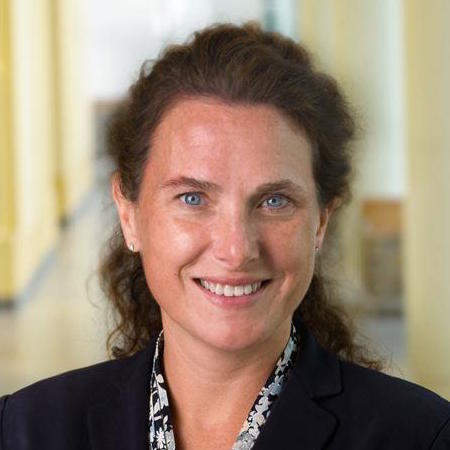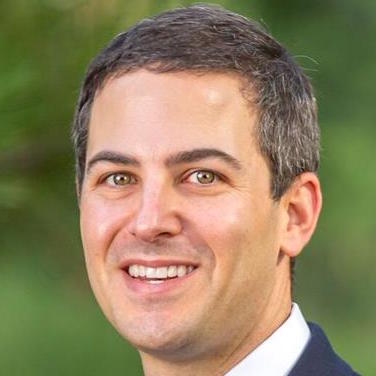The bad news about endometrial cancer — cancer that begins in the lining of the uterus — is that it is one of the few cancers that is increasing in incidence even as most other cancers are on the decline, thanks to advances in treatment and prevention.
The good news about endometrial cancer is that it is most often discovered in the early stages and is treatable by surgery alone. However, endometrial cancer does recur in a certain percentage of patients, and when it recurs, it is often incurable.
University of Colorado Cancer Center member Bradley Corr, MD, is conducting research into why endometrial cancer recurs in some women, looking specifically at the genetic mutations that occur in the tumors of those patients in whom the cancer comes back.
“What I'm focused on is finding that higher-risk population within the low-risk population, because I want to ensure that everybody gets cured,” says Corr, associate professor of gynecological oncology in the CU School of Medicine. “I'm trying to prove that these genetic mutations — particularly a mutation known as CTNNB1 — are higher-risk mutations, and these patients may warrant further therapy.”
Expanding the dataset
Corr and his research team already have published one paper on CTNNB1 mutations and how they correlate with increased risk of recurrence, using single-institution data from 88 tumors to show that recurrence of endometrial cancer happened more often when the CTNNB1 mutation was present.
Corr is now moving on to the next step in his research, looking at a larger amount of patient data to verify that the CTNNB1 mutation is an accurate biomarker for recurrence of endometrial cancer — and thus a promising potential target for therapeutic agents.
“What we'll be able to do with this large database is to find out if this mutation is statistically significant,” Corr says. “We've already published on this with a smaller case cohort; now what we're trying to do is use a much larger database to really prove it. Then we can dive deeper into the data and look at other analyses of these recurrent patients, versus the ones who don't recur.”
The ORIEN effect
Corr is aided in his research by the CU Cancer Center’s membership in the Oncology Research Information Exchange Network (ORIEN), a network of cancer centers that shares data and tissue samples from more than 273,000 patients. The resource helps researchers evaluate the long-term effects of different cancers, treatment choices, and lifestyle; gives physicians a better understanding of patient outcomes and treatment options; helps patients find clinical trials that reflect the details of their diagnosis; and develops a molecular database that can serve as a resource for future research.
“For this project, specifically, having the capability to gain genetic, clinical, and RNA data from multiple institutions and not have to pay for it out of pocket from a specific grant is really a phenomenal resource,” Corr says.

The CU Cancer Center joined ORIEN in 2016 and was the third institution to become part of the consortium, says CU Cancer Center member Virginia Borges, MD, MMSc, who oversees the resource at the CU Cancer Center. It has been an invaluable tool for researchers looking for data on a larger scale than what a CU-specific study could reveal.
“If you need big information, or you’re working on a rare cancer where our institution will not have enough cases to be able to figure anything out, you can put in a request on the national level through ORIEN,” says Borges, professor of medical oncology in the CU School of Medicine. “It’s a way for us to leverage and empower our research potential and accomplish things that we would never be able to do as a single institution.”
Patients at ORIEN member institutions opt in to the network, agreeing to be monitored over their lifetime and share longitudinal data that can help researchers track recurrence and the effects of aging and lifestyle changes.
“In a subset of these cases, ones that are particularly at risk of facing recurrence of disease or metastasis or death due to disease, the tumors undergo a deep level of sequencing of DNA and RNA to identify the genes at play that may dictate why some people do great and some people have more cancer to deal with in their future,” Borges says. “We can also look at the genome of the human — not just tumor DNA, but the person’s genes, what they inherited from their mom and dad. Are there other things at play that could predispose them to get cancer in the first place?”
Part of something bigger
Borges is grateful for the value ORIEN brings to CU Cancer Center researchers, but she is even more grateful to the patients who consent to have their information added to the database.
“At CU, we have more than 9,000 patients so far who have been willing to commit to lifelong follow-up to bring research into the future,” she says. “We couldn't do any of this unless there were folks dealing with their own illness, their own lives, who are willing to step outside of all of that stress and say, ‘Here's a way I can be a part of something bigger than myself and give back and contribute. Maybe it will never make anything better for me, but maybe it'll make something better for other people who will have to face what I've faced. I want to be a part of that.’”
.png)




